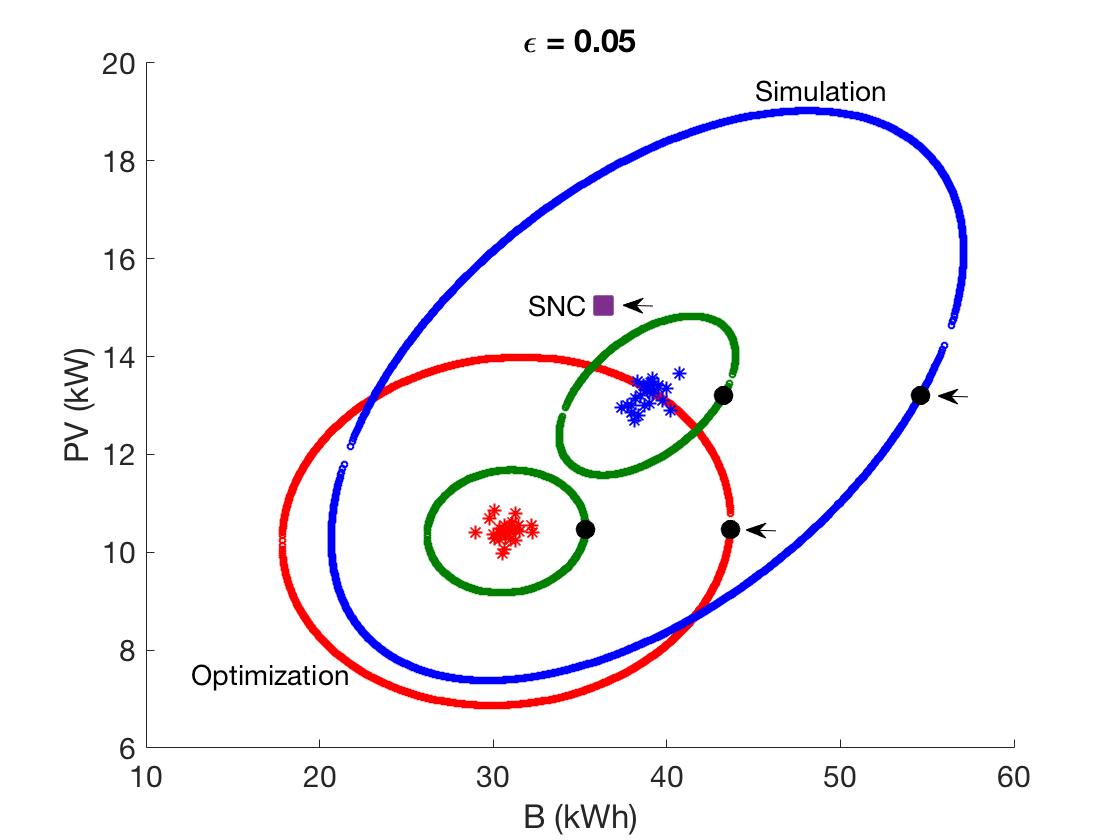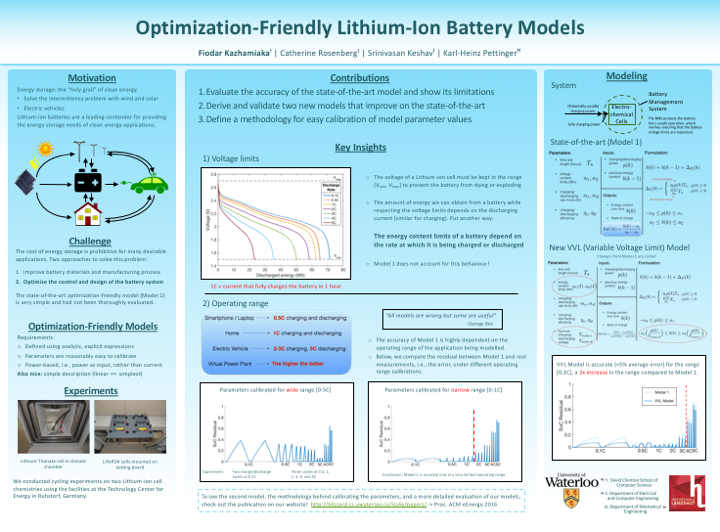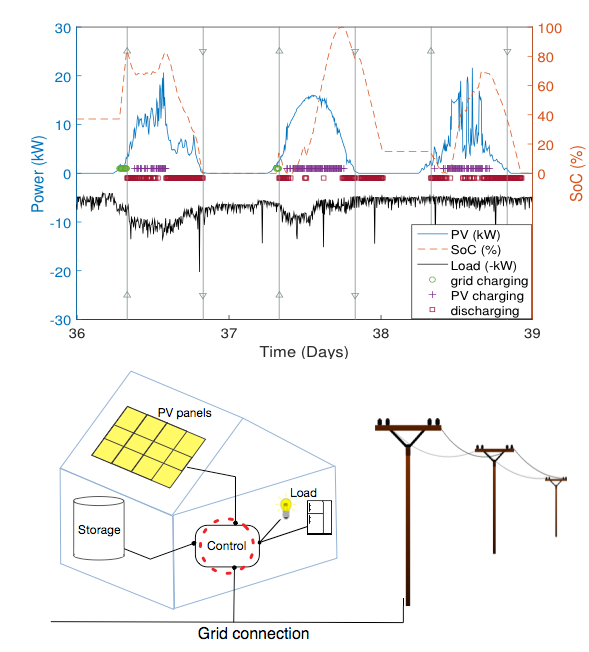Robust and Practical Approaches for Solar PV and Storage Sizing
 Suppose you want to purchase a system with solar panels and battery to power your home. How many panels do you buy? How big of a battery do you need? These questions are coupled, and depend on how often you're willing to go without power.
Suppose you want to purchase a system with solar panels and battery to power your home. How many panels do you buy? How big of a battery do you need? These questions are coupled, and depend on how often you're willing to go without power.
The most direct and difficult way get an answer is to formulate and solve a complex robust optimization problem which considers the statistical properties of two stochastic processes: solar generation and electricity consumption. We consider three alternative methods: simulation, mathematical programming, and stochastic network calculus. One of our main contributions is the use of a recent advancement in empirical multi-variate probability concentration bounds to compute a robust least-cost system size that meets the target loss-of-load probability.
This work was presented at ACM eEnergy 2018, and was voted as runner-up for the best paper (audience choice).

 This work looks at grid-tied PV and storage systems that are deployed for self-consumption of renewable energy.
These systems are starting to be deployed in homes and small businesses at an increasing rate,
but existing research has not focused much on the efficient operation of the system.
Moreover, existing ad-hoc operating strategies have been proposed but have not been properly evaluated.
The contribution of our work is an approach to evaluate existing strategies and gain insight into designing new efficient and practical strategies,
making it a valuable tool for manufacturers and users.
One of our contributions is a novel operation strategy for peak-demand grid pricing schemes that has shown near-optimal performance.
This work has been published in IEEE Transactions on Sustainable Energy.
This work looks at grid-tied PV and storage systems that are deployed for self-consumption of renewable energy.
These systems are starting to be deployed in homes and small businesses at an increasing rate,
but existing research has not focused much on the efficient operation of the system.
Moreover, existing ad-hoc operating strategies have been proposed but have not been properly evaluated.
The contribution of our work is an approach to evaluate existing strategies and gain insight into designing new efficient and practical strategies,
making it a valuable tool for manufacturers and users.
One of our contributions is a novel operation strategy for peak-demand grid pricing schemes that has shown near-optimal performance.
This work has been published in IEEE Transactions on Sustainable Energy.
 The focus of this work is on the optimal budget allocation for an investment into a solar PV farm with storage.
In North America, the vast majority of new installed PV capacity is in the form of utility-scale solar farms.
Our results are directly applicable to industry, where investors are already funding large solar farm projects for participation in the energy markets.
Our work looks ahead to the near future, where the energy market for solar will likely change to resemble traditional energy generator markets rather than the flexible, heavily subsidized market seen today.
We provide a template for conducting budget allocation analysis not just for solar farms,
but also for wind farms and other unreliable energy sources where storage can play a role.
The focus of this work is on the optimal budget allocation for an investment into a solar PV farm with storage.
In North America, the vast majority of new installed PV capacity is in the form of utility-scale solar farms.
Our results are directly applicable to industry, where investors are already funding large solar farm projects for participation in the energy markets.
Our work looks ahead to the near future, where the energy market for solar will likely change to resemble traditional energy generator markets rather than the flexible, heavily subsidized market seen today.
We provide a template for conducting budget allocation analysis not just for solar farms,
but also for wind farms and other unreliable energy sources where storage can play a role.